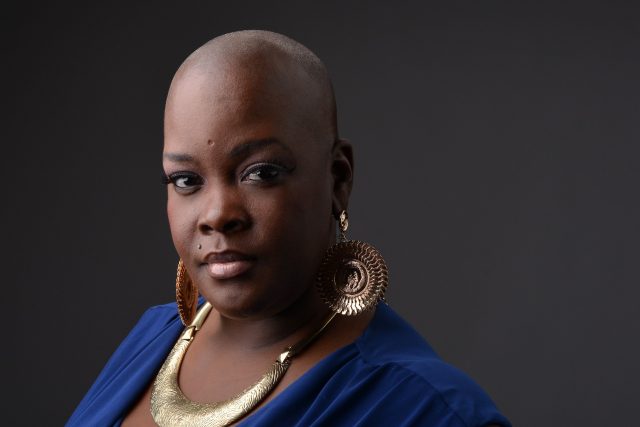Poet, educator, social justice educator and author of “The Body is Not an Apology” Sonya Renee Taylor will visit Madison College for their speaking series at 7 p.m. on Monday, March 11. The event will take place at the Mitby Theater on the Madison College Truax Campus.
In 2011, she founded and serves as the Radical Executive Officer of The Body is Not An Apology, a digital media and education company promoting radical self-love and body empowerment. This movement developed after a casual conversation between Taylor and a friend about how her cerebral palsy made it difficult to be sexual. She wanted people to know all bodies are valid in their current form.
“I grew up with all different kinds of bodies and experiences,” Taylor said in an interview with Madison365.
She said she has always had an open mind even before she learned about social justice and the appropriate terminology. Taylor attributes this to growing up with a brother who has a disability and meeting all types of people.
“I grew up between Pittsburgh and California and I think because of that there was always a process of adaptation,” she said.
While she found herself exposed to all kinds of bodies, she still received the same messages all people received around her. In fact, Taylor said she did not begin challenging those messages in an intentional way until later on in life. In high school, she worked as a youth sex educator and because of her work she had access to more resources and information. Taylor said she gained access to more language around class or race in college but having language did not develop her worldview.
“The reason I didn’t have a worldview was because I wasn’t thinking about the world, I was thinking about my individual (self),” she said.
Taylor said she gained a worldview once she began to look at the bigger picture and how systems of oppression affected many people in different ways. Her activism blended her love for writing, artistic expression and training in sociology. The Body is Not An Apology has become a foundational tool for social justice and global transformation reaching nearly 1 million people per month from over 140 countries.
“By virtue already, since I run a digital media website, there’s inherently the fact there is a certain level of privilege,” Taylor said.
Even though she and her collaborators have amassed thousands of readers, she still believes in meeting people in their communities, so she travels. Taylor, an international award-winning poet, performs, holds workshops, speaks with organizers, and facilitates dialogue in many different places — including Madison.
However, she said does not try to dictate or teach, but rather focus on creating space for dialogue and listening. Taylor said the biggest thing for her is to not show up in a space as an expert. Her work focuses on radical self-love, an extreme to combat the interest of self-hate that is promoted every day because love is foundational.
“What’s great about radical self love is I’m not actually teaching people (stuff) that don’t know,” she said.
Taylor said movements like body positivity are not enough because although the labor of the movement was born out of the effort of fat people, many organizations have co-opted body positivity and used it to sell size 14 dresses to white women. She does not believe body positivity is expansive enough or libratory as a movement.
“Radical self love said f— that box. You are inherently body valid as it is today,” Taylor said.
She said pushing against the mainstream pressure and desire to co-opt the movement will always be present; however, radical self-love must be an independent movement. This means avoiding corporatization which is difficult because corporate brings in money.
“For me, that’s making sure that the body is not an apology, but is a queer black fat entity,” Taylor said.
Her work centers the most marginalized while working towards a more equitable and compassionate society. Taylor said her activism comes from a place that is inherently just, equitable and compassionate. She said people have to work on themselves and heal first before achieving true justice.
“Social justice needs radical self-love because without it we become the master’s tools to dismantle the master’s system,” she said.
The event on Monday, March 11 is free but registration is requested. Registration is available online here.


































